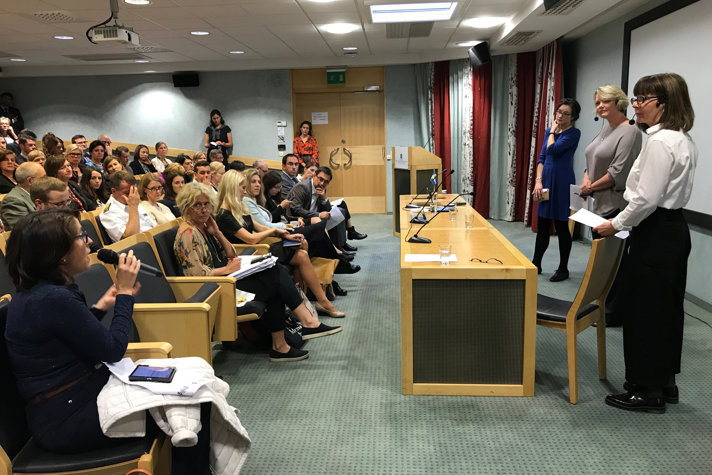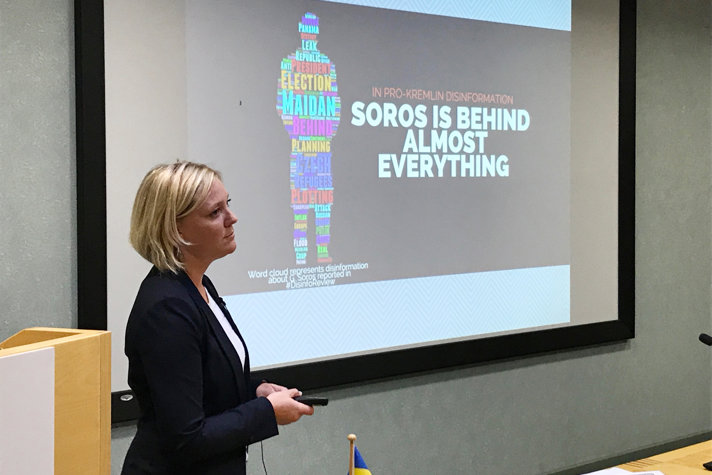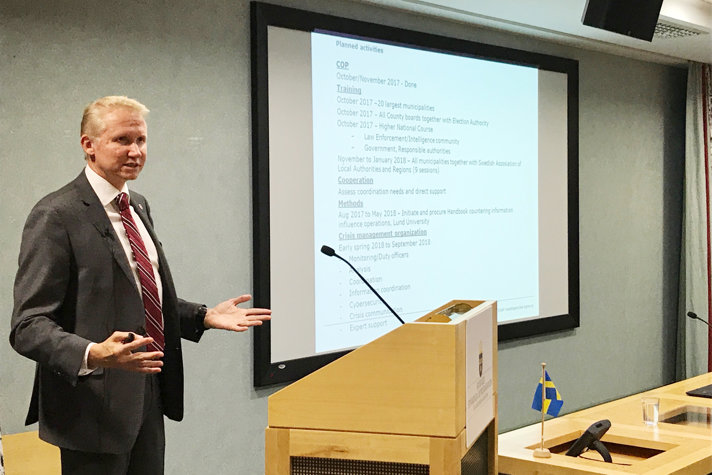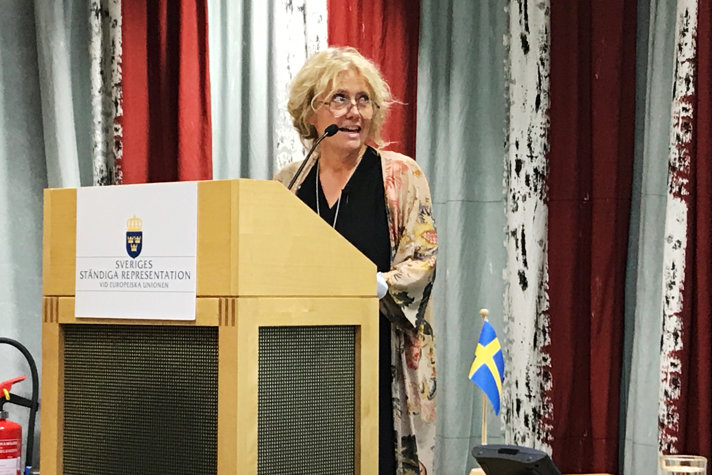A practical approach on how to cope with disinformation
Published
In less than two years, “post-truth”, “fake-news” and “troll factories” have become words that represent one of the political narratives of our time. On 19 September, the Permanent Representation of Sweden to the EU brought together experts to discuss ways to tackle disinformation.
Two Brussels-based journalists, the Guardian's Jennifer Rankin and Juliane von Reppert-Bismarck of Lie Detectors, kicked off the seminar reflecting on why disinformation has become so successful and the many ways in which this development has an impact on journalism and journalists today.
Ida Eklund Lindwall, expert on disinformation analysis, spoke about the work of the EastStratCom Taskforce. She presented findings on disinformation trends and methods as well as typical content and topics of disinformation campaigns.
The following part of the seminar focused on awareness raising activities based on two Swedish examples, namely the work of the Swedish Civil Contingencies Agency and the Swedish Media Council.
Information influence campaigns presenting challenges or threats to public elections are an increasing cause for concern:
"In many countries attempts to influence public elections have been confirmed. These are efforts by other countries to influence government, the public or groups to benefit their own interests. They can consist of spreading false documents, creating fictional individuals in social media or planting news and threats [...] There are no guarantees that future Swedish elections will be protected. On the contrary, we see already today examples of influence on our security policy, Prime Minister Stefan Löfven, wrote in an opinion piece, in Dagens Nyheter, 20 March, 2017.
The Government has tasked The Swedish Civil Contingencies Agency to raise awareness among relevant actors in Sweden to protect the general election in September 2018 from foreign influence activities. Mikael Tofvesson, head of Section for global monitoring and analysis, spoke about the agency's work to detect threats and vulnerabilities.
Ewa Thorslund, director of the Swedish Media Council, presented the council's resources to help young people become better critical thinkers and improve their ability to detect disinformation. Some of the teaching material is translated into English.
Press counsellor of the Representation of Finland to the EU, Leena Brandt, moderated the seminar.
The seminar was part of the Freedom of Speech and Transparency programme for 2017 of the Ministry for Foreign Affairs of Sweden and supported the digital agenda of the EU Presidency of Estonia, July-December, 2017.
Links:





 X
X